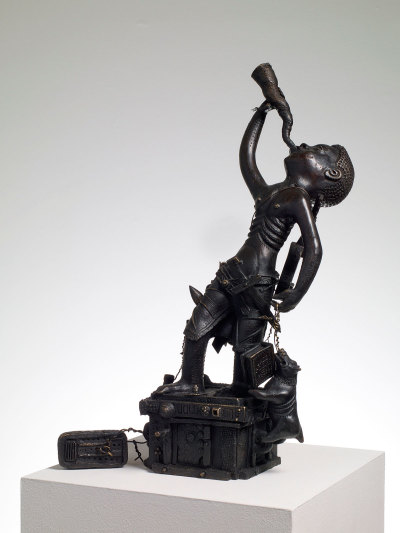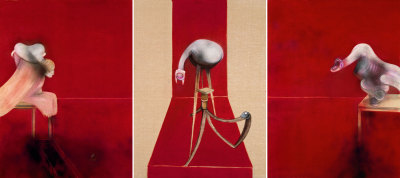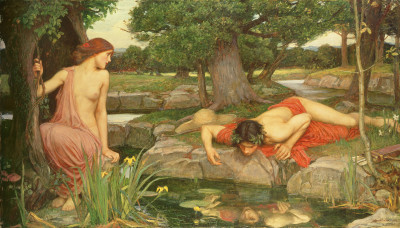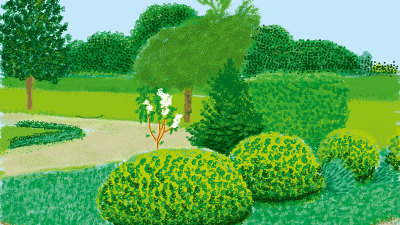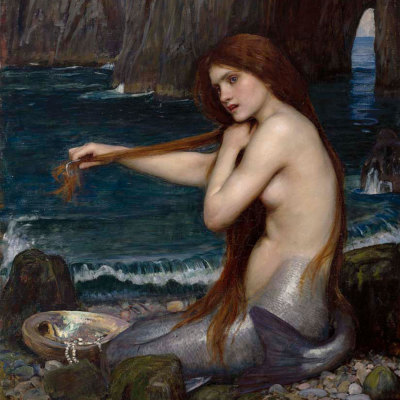Grayson Perry RA’s portraits of Britain
Grayson Perry RA’s portraits of Britain
By Isabel Morrish
Published 3 November 2014
The Royal Academician’s major exhibition in London turns to us, the people of modern Britain, unveiling 14 new portraits that spotlight the complexities behind our identity.
-
Who are You?, Grayson’s Perry’s new exhibition at the National Portrait Gallery, continues his detective work into the unstable components of our identity – our gender, religion, politics – through the playful use of traditional art forms. Like class or aesthetic taste, identity is often taken for granted but problematic to define. “People like to think that they have a handle on who they are”, Perry said at the exhibition’s press conference, “but I fear we are all just a collection of baggage and there is nobody holding the baggage”. This absence takes visual form in the empty centre of his metaphorical self-portrait, A Map of Days (below).
-

Grayson Perry RA, A Map of Days, 2013.
© The artist courtesy of Victoria Miro Gallery. Photo: Royal Academy of Arts, London.
-
Perry’s portraits are interspersed through the 19th- and 20th- century permanent collections – a small logo of a man kicking a tin is next to each painting, leading us on a trail from work to work. Perry dislikes the reductive convention of trying to capture physical likeness and his works are “not primarily concerned with what the subjects look like”. Process plays a more important part in the artist’s creativity and he explains that the formats of the portraits came out of his encounters “with the subjects and their environment.” The portraits, like identity itself, comprise a narrative and unsettle the conventional charge that the historic genre of portraiture conveys essential aspects of character. They are snapshots of identity, which Perry highlights is “co-created, shifting, multilayered”, a lifelong performance that evolves and adapts to certain situations. “It is not this clean, simple ‘you are like this’. It is a poetic thing, a series of metaphors and experiences that build up.”
The works represent the “unusual and troubled”, who stand out next to the impervious, polished “icons of British solidarity” that hang alongside them. Interestingly, the portrait of X Factor contestant Rylan Clarke subtly interacts, even blends in, with the miniatures of George Eliot and Wilkie Collins. Clarke’s portrait is a gilt-framed 21st century version of an Elizabethan court portrait. Aptly titled The Earl of Essex, the painting has a shiny surface that echoes both the smartphone central to paper-thin celebrity culture and the media lens through which Rylan’s identity is magnified.
-

Grayson Perry RA, The Earl of Essex, 2014.

Grayson Perry RA, I am a Man, 2014.

Grayson Perry RA, The Huhne Vase, 2014.
-
Female to male transsexual Alex White is depicted in the heroic form of a statue titled I am a Man – the indeterminate figure of Peter Pan in the style of a Benin bronze. Alex White holds a horn, a symbol that victoriously affirms his masculine identity. On show in a gallery called ‘Expansion and Empire’, White’s proclamation of an identity outside gender convention is celebrated in a space of colonialism. The Ashford Hijab (pictured at top), fittingly made of screen-printed silk, depicts Kayleigh Khosravi leaving the pressures of consumer culture and finding refuge in the mosque, a tranquil place of sisterhood. Like White’s horn, Kaleigh’s hijab is a physical proclamation of new identity and is a symbol of the certainty offered to her by faith.
Disgraced cabinet minister Chris Huhne adopts the form of a ceramic vase, appropriately on display in the central hall alongside other figures from the British political establishment. The repeated motif of Huhne’s penis and personalised number plate, inspired by Warhol, acts as a provocative retort to the white, middle-class male that denies being one of many in an “elite tribe”. Here Perry uses ceramics for as biting a satirical purpose as Hogarth used prints. The pot has been smashed and then put back together, with the cracks painted with gold leaf – a metaphor for the importance that public figures display their vulnerability.
Perry explains that philosopher Julian Baggini’s phrase “‘I’ is a verb masquerading as a noun” underpins his understanding of identity. Most importantly, he claims, his job as an artist is to address the truths that surface when our identity is called into question.
Grayson Perry: Who are You? is at the National Portrait Gallery, London, until 15 March 2015, accompanied by a three-part film series on Channel 4.
Isabel Morrish is a contributor to RA Magazine.


